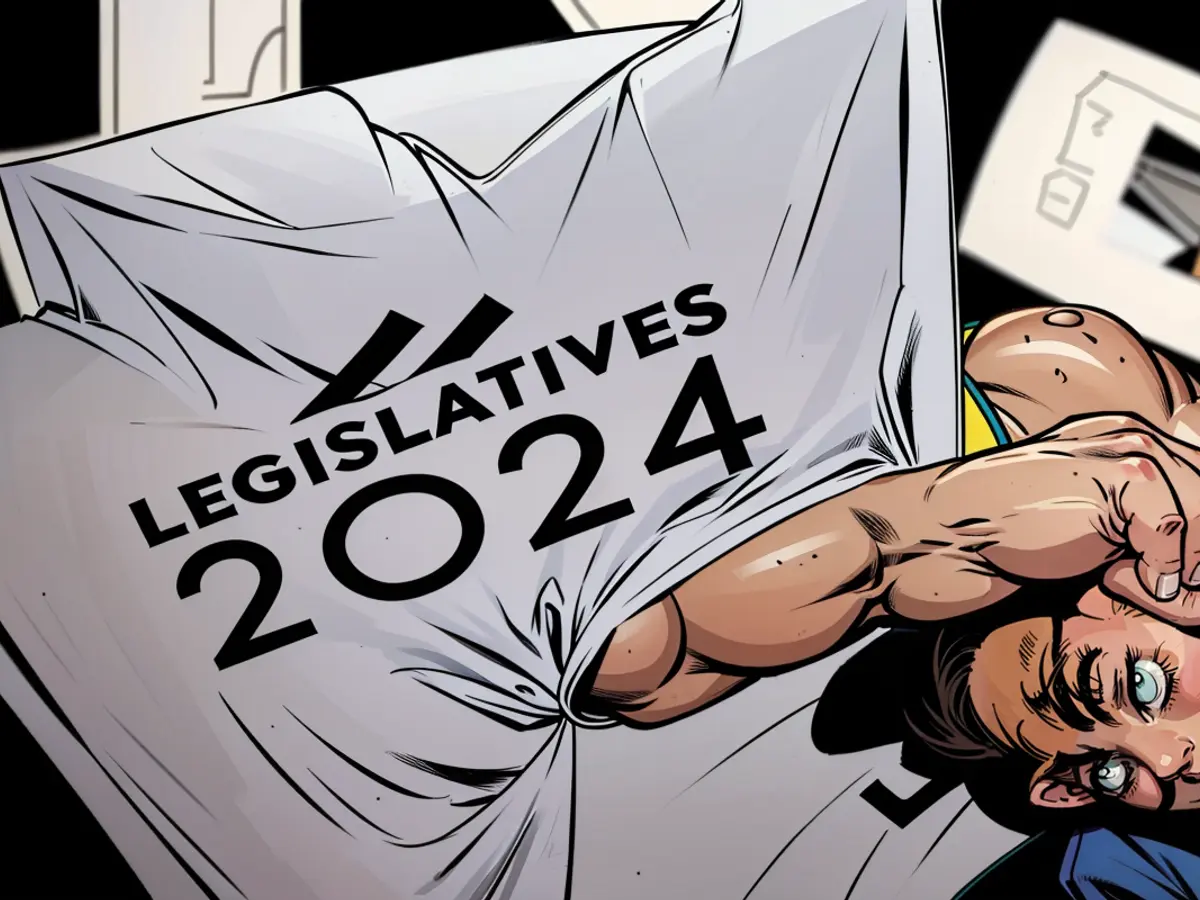France election: More than 200 candidates opt for tactical withdrawal
Due to high turnout in the first round of elections on Sunday, over 300 of the 577 constituencies qualified three candidates from the right-wing Rassemblement National (RN) party for the runoff. In nearly half of these cases, the RN candidate was in the lead. If the third-place candidates were to withdraw, this would decrease the RN candidate's chances of winning the runoff.
According to an initial projection by the website "Le Grand Continent," the candidates' withdrawals could prevent the RN from achieving an absolute majority. However, this is difficult to quantify as voters may not strictly adhere to endorsements. Additionally, the level of voter turnout plays a significant role.
"In the end, the French decide according to their conscience and not based on endorsements," said an advisor to President Emmanuel Macron. "But mathematically, the risk of an absolute majority for the RN decreases."
Some RN candidates have announced they will not participate in the runoff. These candidates could potentially receive support from the candidates they might have helped win, at a later date, in the National Assembly.
Meanwhile, the right-wing National Rally (RN) has stated they intend to form a government without an absolute majority. They plan to include supporters from other parties and representatives from civil society, according to former party leader Marine Le Pen in an interview with France Inter on Tuesday. "It will be a competent government," she emphasized. "If we get a majority, we will naturally do what the voters have elected us to do."
Le Pen's statement diverges from her party chief Jordan Bardella's previous stance, who only intended to assume the premiership in the event of an absolute majority. "If we have approximately 270 seats and need 19 more, we will approach others," Le Pen said. "Several right-wing, as well as left-wing, deputies have shown affinity for our positions."
However, reports of RN candidates raising concerns about their competence are increasing. One candidate, Ludivine Daoudi, withdrew from the runoff after a photo of her wearing an NS-Luftwaffe umbrella with a swastika emerged. In the first round, she had received 20% of the votes in the northern French department of Calvados.
Another RN candidate in the western French department of Jura might not be able to take office if they win in the second round due to legal guardianship requirements. The 65-year-old candidate had come in second place with 33% of the votes.
An RN candidate in the Mayenne department dismissed accusations of racism against her party by stating that her dentist was Muslim and her ophthalmologist was Jewish. Another candidate had gained attention a few years ago due to an armed hostage situation at the Ernée town hall.
In the upcoming runoff on Sunday, the seat distribution in the National Assembly will be decided. To achieve an absolute majority, 289 of the 577 seats are required.
The Rassemblement National (RN) party, led by Marine Le Pen, saw 300 of their candidates qualify for the runoff in the first round of the French election. Emmanuel Macron's advisor noted that the risk of an absolute majority for the RN decreases in the runoff, despite some RN candidates announcing their withdrawal. If certain third-place candidates withdraw, it could potentially prevent the RN from achieving an absolute majority, according to an initial projection by the website "Le Grand Continent." The right-wing National Rally (RN) has stated they intend to form a government without an absolute majority, including supporters from other parties and representatives from civil society.
In the runoff, over 577 constituencies will decide the distribution of seats in the National Assembly, requiring 289 for an absolute majority. However, reports of RN candidates raising concerns about their competence have emerged, such as Ludivine Daoudi's withdrawal after a swastika-related photo scandal. Meanwhile, another RN candidate might not be able to take office due to legal guardianship requirements if they win in the second round.
AFP reported that one RN candidate in the Mayenne department dismissed accusations of racism against her party by sharing her personal relationships with Muslim and Jewish doctors. Another candidate gained attention due to an armed hostage situation at the Erneé town hall a few years ago. The French election's runoff will decide the fate of the National Assembly and the potential formation of a government without an absolute majority for the RN.







